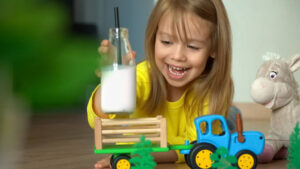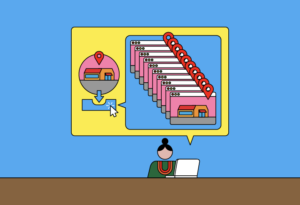
Key Takeaways:
- Learn essential plumbing tips to prevent common household issues.
- Understand how regular maintenance can save you time and money.
- Discover DIY solutions, as well as when to call a professional.
- Get insights into water conservation and eco-friendly plumbing practices.
Table of Contents:
- Preventing Common Plumbing Issues
- The Importance of Routine Maintenance
- DIY vs. Professional Plumbing Solutions
- Water Conservation Tips
- Eco-Friendly Plumbing Practices
- Choosing The Right Plumber
- Emergency Preparedness
- Final Thoughts
Preventing Common Plumbing Issues
Preventing plumbing issues can save homeowners from costly repairs. Simple preventive actions can make a huge difference. For instance, not pouring grease down the drain can prevent serious clogs. Grease solidifies and can block pipes entirely over time. Regularly checking for leaks, even tiny ones, can avoid water damage and reduce water bills. Studies show household leaks can waste nearly one trillion gallons of water annually in the United States. Insulating pipes is another effective preventive measure, as it can help avoid pipe bursts in cold weather. If you’re seeking expert advice or services, reputable plumbing companies in Chicago can provide professional assistance and ensure your plumbing system remains in optimal condition.
The Importance of Routine Maintenance
Routine plumbing maintenance can extend the lifespan of your plumbing system and ensure everything runs smoothly. Regular inspection of faucets, showers, and toilets for leaks can catch problems early before they escalate. Mineral deposits build up over time and can affect water flow, so cleaning these regularly is essential. If you live in an area with hard water, utilizing a water softener can prevent pipe scaling and prolong the life of your plumbing. Additionally, following advice, regularly flushing out your water heater can improve its efficiency and longevity by removing sediment that can cause damage.
DIY vs. Professional Plumbing Solutions
Many minor plumbing issues can be resolved with DIY methods, saving time and money. Unclogging a drain with a plunger or a drain snake is usually straightforward and can be done without professional help. To replace a worn-out washer on a leaky faucet, you only need an essential toolkit and a bit of patience. However, it’s important to recognize when a problem is beyond your capabilities. Complex issues such as sewer line blockages, major pipe leaks, or water heater malfunctions require professional attention. Attempting to fix these on your own can lead to more severe damage and higher repair costs in the long run. Knowing when to call a plumber can save you from unnecessary risks and ensure the job is done correctly.
Water Conservation Tips
Conserving water is essential not only for the environment but also for reducing utility bills. Simple changes in your daily routine can make a significant impact. Installing low-flow showerheads and faucets helps reduce water usage without sacrificing performance. Being vigilant and fixing leaks promptly can save thousands of gallons of water annually. Opting for water-efficient appliances, such as dishwashers and washing machines, can further reduce water consumption. Additionally, rainwater harvesting systems are an innovative way to conserve water by collecting and storing rainwater for outdoor use, such as gardening or irrigation. Implementing these water conservation tips can lead to substantial savings and contribute to a more sustainable lifestyle.
Eco-Friendly Plumbing Practices
Eco-friendly plumbing practices can significantly reduce your household’s environmental impact. Using biodegradable soaps and detergents ensures fewer harmful chemicals enter the water supply, benefiting the environment and your plumbing system. Energy-efficient water heaters reduce your energy bills and minimize your carbon footprint. Sustainable plumbing materials like PEX (cross-linked polyethylene) are durable and less corrosion-prone, making them more environmentally friendly than traditional materials. Recycling rainwater for use in gardens and flushing toilets is another effective green practice that conserves potable water and reduces strain on local water resources. Incorporating these eco-friendly practices can positively impact the environment and promote sustainability.
Choosing The Right Plumber
When professional help is needed, selecting the right plumber is crucial. Look for local plumbers who come highly recommended and have proper licensing and insurance. Reading online reviews and getting multiple quotes can help you make an informed decision. It’s also beneficial to ask for recommendations from neighbors or check online forums dedicated to home improvement and plumbing. A good plumber should offer transparent pricing, explain the work needed, and have experience with similar projects. Establishing a relationship with a trustworthy plumber can give you peace of mind, knowing you have a reliable professional to call in times of need.
Emergency Preparedness
Being prepared for plumbing emergencies can lessen the damage and stress. Knowing how to shut off the main valve can prevent flooding and water damage. Emergency repair tools and supplies, such as a plunger, pipe wrench, and duct tape, should be readily accessible. It is also essential to have the contact information of a trusted emergency plumber on hand. Planning for everyday emergencies, such as burst pipes or overflowing toilets, can help you act quickly and minimize damage. Regularly reviewing and updating your emergency preparedness plan ensures that you and your household are ready to handle unforeseen plumbing issues effectively.
Final Thoughts
Plumbing issues, although inevitable, can be minimized with knowledge and preparation. Regular maintenance, good habits, and knowing when to seek professional help can save homeowners from costly repairs and unnecessary stress. You can also contribute to a healthier environment by adopting water conservation and eco-friendly practices. Staying informed about preventive measures and maintenance tips allows you to enjoy a smoothly-running plumbing system and peace of mind. Remember, a little effort and vigilance now can save you from major headaches down the road. Investing in your plumbing system is an investment in the longevity and comfort of your home.





